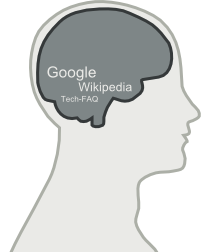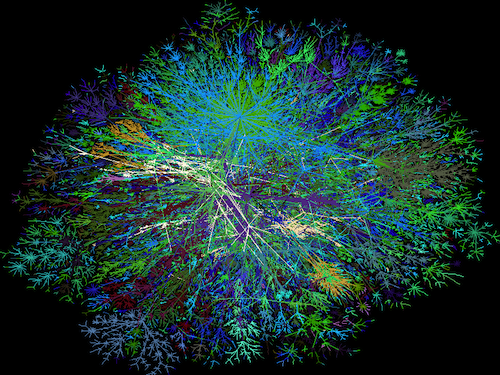The Internet is Making us “Superhuman”
 According to a study done by Science Express reliable and constant access to online information is affecting how we use our memory. Instead of remembering facts ourselves we remember where we can find those facts.
According to a study done by Science Express reliable and constant access to online information is affecting how we use our memory. Instead of remembering facts ourselves we remember where we can find those facts.
This phenomenon was observed even before the age of the internet when people operating in groups know that they can get some information they need from specific persons in that group (someone that may be an expert on a given field). Instead of bothering to remember said information, they just remember the person from which they can get it. This is referred to as “Transactive Memory”.
Most of us who heavily use the internet can probably come up with examples that relate to this study’s conclusions. How many times have you followed an instruction guide found on the internet to accomplish a particular task, only to let yourself forget most of what you read and did because you don’t consider it as something you need to know (because it might not be your area of expertise, for example), and more importantly, because you can find the instructions again so easily if you ever needed them again!
Similar studies have been done in recent times, trying to figure out how does our increased reliance on the internet affect how we think and behave. They often seem to imply a negative consequence of our internet dependence, probably because we wonder what would happen to us if all of this technology suddenly evaporated, and because we might generally value being independent and self-sufficient.
However, what is happening to us quickly begins making sense when we consider what we might be getting in return. It is why all of this technology has so much appeal to begin with. In terms of our memory usage, remembering where we can find something instead of remembering the information itself actually provides us with access to a far greater amount of information at any time. It also saves the effort that may be required to remember such information for other possibly more productive and fulfilling tasks.
In other words, the internet is becoming an extension of our processing power and intelligence, and humans are more and more becoming a hybrid of technology and our old organic selves. Yes, this sounds transhumanist, and that is because it is transhuman. The effective merger of humans and our technology is so successful precisely because it is so subtle, and natural, because it provides us with benefits that we naturally seek. The ability to know more, to process more, and as a result to accomplish more all factor in among those natural aspirations.
There is a flip side to all of this, which implies that as our technology evolves and our reliance on it increases, we are pushed to evolve as well. It may be that we are converting more of our own organic memory space to a mere index of where to find information, but the resulting “information overload” also puts strain on our capacity to process what we are informed about. This “information overload” may effectively be flexing our brain muscles, therefore causing it to grow and evolve more than they were ever required.
This of course depends a lot on how much do we try to process all the information we access, as opposed to simply consuming and discarding it, but with so much information I think the chances that we will in sum process more are greater than if we had access to less information overall. In other words, technology may be stimulating our own organic evolution as well. When we perceive a seeming loss in one area it may very well be balanced as a gain in another, but when we look at the whole package, with both ourselves and our technology tied together, we can see a tremendous advancement.
You, along with your computer and a smartphone, are effectively a superhuman. You can “know” everything that the world knows. You can “see” everywhere there is a public web camera or a satellite mapping. You can communicate with anyone of hundreds of millions of people out there. Unplug, and you lose it all, turning back into a “mere human” that only knows what his limited senses can perceive right here and right now, but nothing more.
I suppose this is why most people aren’t bothered by studies such as this, and happily remain plugged in, more than ever. I believe this is bound to continue, and because of that, I believe that we are better off trying to figure out how to use our newfound superpowers for most good, than worry about being dependent on them to begin with.



Comments - No Responses to “The Internet is Making us “Superhuman””
Sorry but comments are closed at this time.